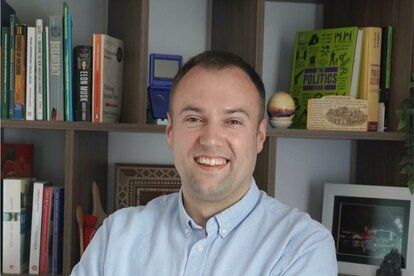Let’s Build Economies Where All Can Prosper: An Ambitious Initiative Launches in Eastern Europe, South Caucasus and the Western Balkans
A new program has launched in 12 countries to enable women, youth and other vulnerable and marginalized groups to increase their income and take up decent jobs.
The macroeconomic performance of most countries in Eastern Europe, South Caucasus and the Western Balkans has been improving in the recent years. However, this positive macrotrend has not translated into a better life for everyone. The Gross Domestic Product growth has not brought enough inclusive, sustainable jobs to the most disadvantaged. On top of that, now that the COVID-19 pandemic has worsened the economic situation, the excluded and the poor are more likely to become even more excluded and poorer.
The Swiss development organization, Helvetas, is partnering with the Swedish International Development Cooperation Agency (Sida) to facilitate an inclusive economic development program in 12 countries in Eastern Europe (Belarus, Moldova, and Ukraine); South Caucasus (Armenia, Azerbaijan, and Georgia); and the Western Balkans (Albania, Bosnia & Herzegovina, Kosovo, Montenegro, North Macedonia, and Serbia). The name of the program, Reconomy, stands for 'starting afresh', revitalizing the transitioning economies in the region.
The overarching objective of Reconomy is to enable women, youth and other vulnerable groups to increase their income and take up decent jobs. The Swiss-Swedish partnership aims to achieve this via three workstreams:
· Improving the supply side, i.e. making sure that the job seekers have the skills that the market needs, and that there are platforms that pair up job seekers and vacancies efficiently.
· Improving the demand side, i.e. strengthening financial and business services.
· Advocating for policies and regulations that promote inclusive economic development.
Reconomy pays special attention to the importance of environmental constraints and opportunities. The economic development will not be sustainable without considering resource efficiency, climate mitigation, carbon removal, and biodiversity protection.
However, Reconomy will be more than a sum of these activities in each of the 12 countries. “We will map out individual country challenges while at the same time having a regional perspective,” says Zenebe Uraguchi, the program manager. “We will identify and test innovative ideas that will add benefits to more countries in the region, creating synergies.”
Synergies will come not only from knowledge sharing across countries, but also between different stakeholders – governments, nonprofits, education institutions, and businesses. “The Helvetas way of working is one that facilitates local ownership and initiative, brings together people and organizations around relevant topics to develop a joint vision and plan, and relies on implementing partnerships as well as technical expertise provided by others to bring about large-scale and sustainable change. Partnerships are therefore at the core of Helvetas’ implementing model,” adds Zenebe Uraguchi.
For more information:


